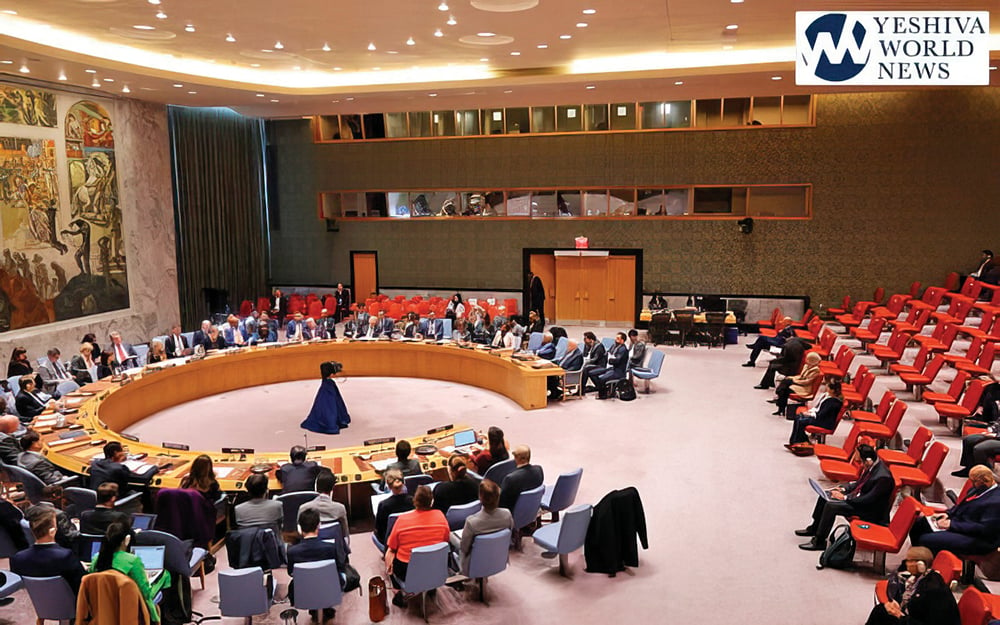The two sides in an ongoing dispute about whether “personal” remarks accusing Israel of human rights abuses made at a meeting by two Palestinian-American commissioners on the Clifton Board of Education violated state law is now in the hands of the School Ethics Commission.
The commission, part of the state Department of Education, must now sift through certifications and legal briefs submitted by the two commissioners, Ferris Awaad and Fahim K. Abedrabbo and their attorney as well as the response to those filings by the complainant, Elisabeth Schwartz.
The four lengthy legal documents, which have been obtained by The Jewish Link, show the two sides clashing repeatedly over interpretations of state law and board policy. They were sent to the commission’s executive director, Kathryn A. Whalen.
If the commission finds “probable cause” that the commissioners ran afoul of ethics laws, it will refer the case to the state Department of Administrative Law, according to the department’s website. Penalties that could be imposed by the commission are censure, suspension or removal. Board members may appeal any penalty.
The statements made at the May 20 meeting sparked two-and-a-half hours of heated public comment, largely on the Middle East situation, at the Aug. 5 meeting by members of the public on both sides of the matter.
Members of the Jewish community dubbed their statements as “dangerous” and “untruthful” and called the commissioners’ accusing Israel of ethnic cleansing and apartheid, and comparing its treatment of Palestinians to the killing of George Floyd, antisemitic. They voiced concerns that these sentiments could be turned against Jewish students and staff, a point echoed by Schwartz, a former member of the Englewood Board of Education. Schwartz said Awaad’s closing statement at the board meeting, “Free Palestine. Free my people,” which is linked to the Boycott, Divestment Sanctions campaign against Israel, is “intensely antisemitic and anti-Israel.”
Both commissioners and Stephen R. Fogarty, the Fair Lawn attorney representing them on behalf of the board, stated nothing in their comments was antisemitic or criticized Judaism.
The documents also cite various legal precedents and news sources, including the New York Times and NBC, to bolster their claims on whether violations took place or the statements made at the meetings were true.
Schwartz contended the commissioners’ comments were unrelated to board business and not covered under the jurisdiction or authority of the board, citing a provision of its policy stating, “All persons receiving permission to address the Board shall confine their remarks to those matters that are properly related to Board of Education business or which come under the jurisdiction or authority of the board.” Schwartz also stated their comments could endanger Jewish students, teachers and personnel, particular those who are pro-Israel, and violate a state provision forbidding board members from actions that could harm personnel.
“I assert that if the respondents are not censured this case will set a precedent for School Board officials to make controversial and false statements at School Board meetings that have nothing to do with their board responsibilities, thus distracting from Education, wasting precious resources, and degrading confidence in Boards of Education,” she wrote. “School Board meetings will become a free-for-all where board members say whatever true or untrue statements they feel like expressing at the moment.”
However, Fogarty said in his filing that there was no “factual evidence” the commissioners “took deliberate action which resulted in undermining, opposing, compromising or harming school personnel in the proper performance of their duties” in violation of state law. He stated board regulations and policies contain no limitations on the subject about what a commissioner can offer his or her opinion about and cited a provision stating, “Board members are entitled to express themselves publicly on any matter including issues involving the board and school district,” as long as they state, “that the opinions expressed do not necessarily represent those of the Board.”
“As such, there are no limits to the subjects upon which a commissioner is permitted to opine, so long as the speech at issue does not violate any provisions of the Code of Ethics for school board members,” wrote Fogarty, adding Awaad and Abedrabbo’s statements were “deeply-felt” and “made purely and solely in their personal capacities.”
However, Schwartz claimed statements “advocating for Palestine at an official public school board are not covered under First Amendment rights for public employees as asserted in their responses.”
Awaad acknowledged he had said, “In light of my Palestinian heritage and my strong belief in the right of all humans to live equitably and peacefully, I took the opportunity to comment on the violence and bloodshed then spreading and intensifying throughout the state of Israel, the West Bank and Gaza.” He said he wished peace to those on both sides and “spoke of my sadness that the state of Israel, which is funded by U.S. taxpayer money, oppresses the Palestinian people.”
Awaad also said he called Gaza “in practice the world’s largest open-air prison with apartheid style walls.” Awaad also claimed that many American police forces receive training in Israel or from Israeli specialists in “abusive tactics, including a knee hold that an officer used to kill George Floyd.” He had apologized if his comments upset anyone and said of the Palestinians, “All they want is to live with their neighbors in peace.”
Abedrabbo said he supported Israel’s right to exist within its originally mandated 1948 borders and said Palestinian children should have the right to education as other children without worrying about their homes being destroyed or their neighborhoods ethnically cleansed.
“Contrary to the explicit and implicit statements in the Amended Complaint absolutely nothing I said during the Commissioner comments portion of the May 20, 2021, board meeting was remotely antisemitic. In fact, I made no reference to the Jewish faith whatsoever,” he said, adding, “I am not an antisemite, and contrary to complainant’s closed mindset, it is possible to criticize the actions of the state of Israel without being antisemitic.”
By Debra Rubin












